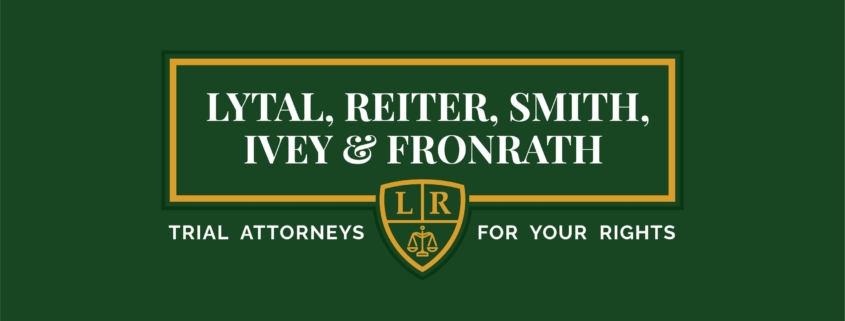Premise Liability Law
A commonplace action that most property owners take with built in liability potential is making their premises easily accessible to others. Few people are aware that there are judicial guidelines that determine a property owner’s liability if someone sustains an injury while on their property. The legal terminology for property owner’s responsibility for premises safety is “Premises liability law” which is, in essence, a sub-category of personal injury law.Premises liability law is designed to protect people who are hurt from a slip and fall or become the victim of a crime that result in injury or death while visiting a home or commercial property such as an amusement park, a restaurant, store or parking area. Some of the most common conditions that can be potentially dangerous and the direct cause of serious injuries may include:
- Insufficient lighting on walkways and stairs.
- Missing or broken handrails on stairways.
- Insufficient warning at doorways that open or lead directly to a basement stairway.
- Wet or slippery floors
- Uneven walkways
- Inadequate security against third-party crime
- Failure to provide adequate protection in and around swimming pools for invited guests.
- Glass doors that are situated in inconspicuous or unexpected locations.
Just because someone was injured on your property, however, does not necessarily mean that they will win a liability suit by default. Several factors may come into play that will determine the outcome of a premises liability suit including but not limited to the type of property and the visitor’s status.
Visitor status is an important element in Premises Liability cases. It is determined based on the whether the injured person is a social guest, public or business invitee, uninvited licensee or trespasser.
- Social guests are considered licensees by invitation who assume ordinary risks associated with their visit to a property. Although most social guests are usually invited by the property owner, he or she is typically not considered an invitee within the legal meaning of that term. Although property owners are not duty bound to reconstruct or improve the premises for the sole purpose of making it more convenient or safer for those who accept their invitation and hospitality, it is important to note that a property owner may be liable for bodily harm sustained by a social guest that is caused by a natural or artificial condition if:
- the property owner had foreknowledge of the hazardous condition,
- was aware that it could present an unreasonable risk to a social guest,
- had reason to believe that they would not discover the condition or realize the risk, and
- still invited or permitted an invited guest to enter or remain on the property without exercising reasonable care to remove or repair the hazardous condition or warn them of the condition and the potential risk.
- A Public Invitee is a member of the public that has been invited to enter a property for the purpose for which the property is open to the public such as an amusement park, theatre, church, grocery store or shopping center. The responsibility of the property owners for a public invitee is to correct or warn them of any known danger as well as provide reasonable protection against third party crime.
- A Business Invitee may be invited to enter a property for purposes that are directly or indirectly related to doing business with the property owner/s. Property owners are responsible to maintain the premises in a reasonably safe condition as well as guard against foreseeable third-party criminal activity.
- An Uninvited Licensee is anyone who choose to enter a property without an expressed or reasonably implied invitation and solely for their own convenience. The property owner should refrain from any willful acts that could result in undue harm or injury.
- Trespassers are considered intruders who enter a property for their own purpose, at their convenience and without implied or expressed invitation or license. In this case, property owners should refrain from causing wanton injury but has no responsibility to guard against third party-crimes.
As a property owner, it is important to recognize that when someone enters your property, they typically have a reasonable expectation of being safe or not getting hurt. however, based on the criteria explained above, a property owner’s basic responsibility is to maintain a relatively safe environment. However, since there are variables involved in every situation, it is best to talk to a qualified personal injury attorney if you have been threatened with a premises liability suit or you were injured due to the negligence of a property owner. To learn more about your rights and premise liability law, call for a free consultation today at (561) 655-1990 or visit our website.
Premise Liability Attorney in West Palm Beach
About Lytal, Reiter, Smith, Ivey & Fronrath
Conveniently located in West Palm Beach for 27 years, Lytal, Reiter, Smith, Ivey & Fronrath, LLP concentrates in Personal Injury, Wrongful death, Medical Malpractice, Product Liability and Auto accidents. At Lytal, Reiter, Smith, Ivey & Fronrath, we specialize in helping victims and their families get fair compensation for injuries caused by the negligence or recklessness of others. Our main areas of practice include personal injury, wrongful death, auto accidents, product liability, medical malpractice, and premise liability. We provide each client with the highest quality representation from a top Florida accident and injury lawyer.
Lytal, Reiter, Smith, Ivey & Fronrath
515 N Flagler Dr, 10th Floor
West Palm Beach
Florida, FL 33401
(561) 655-1990
www.foryourrights.com
© Copyright 2018. All Rights Reserved.




